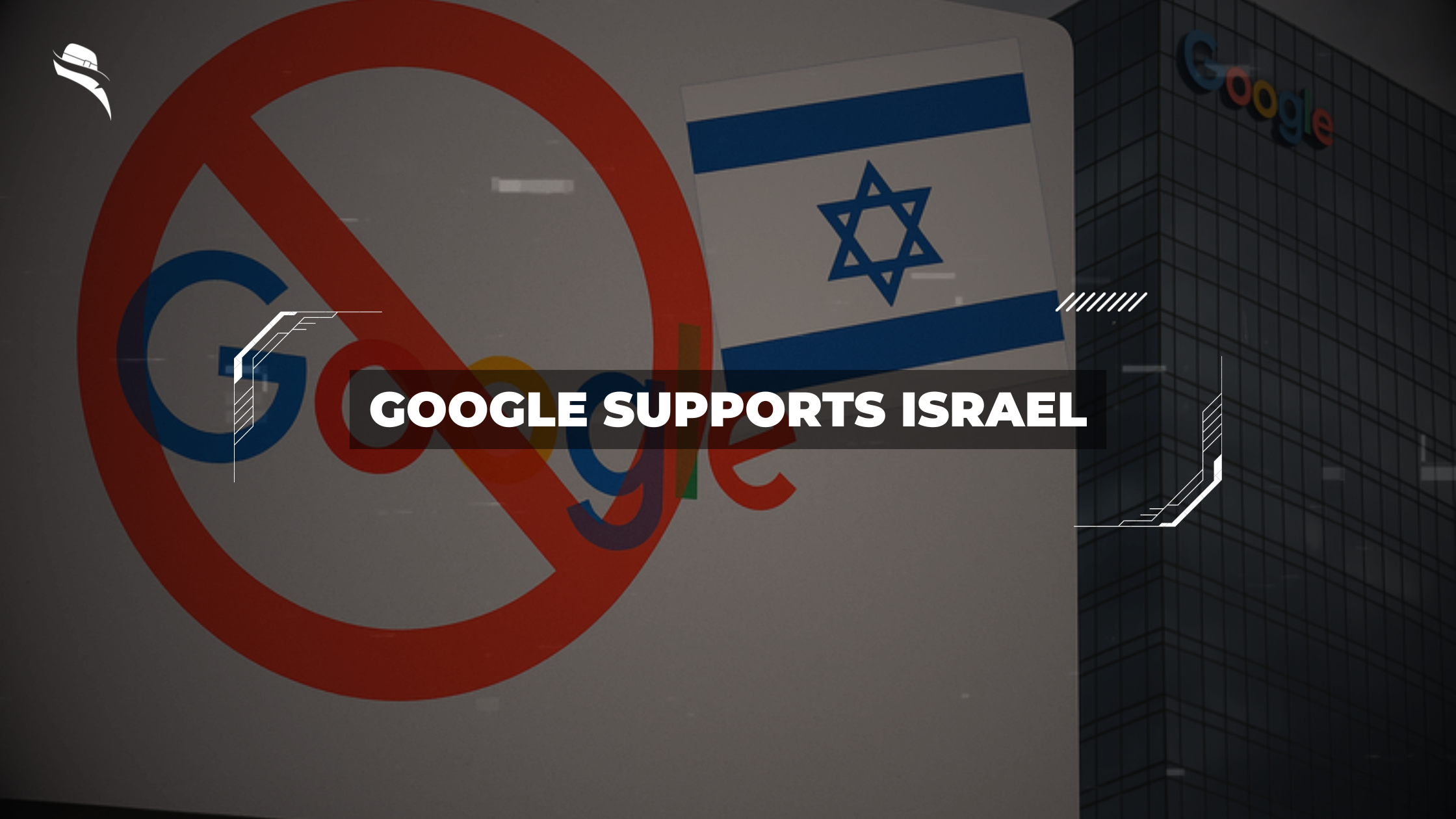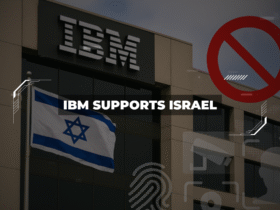Google supports Israel through unprecedented financial commitments, as evidenced by its $32 billion acquisition of Israeli cloud security company Wiz in March 2024 — the largest deal in both Google’s history and the Israeli tech sector. This massive investment represents just one facet of the tech giant’s growing relationship with Israel. In fact, between 2019 and 2023, Israeli startups secured approximately $32 billion in funding, with over half coming from U.S. investment funds.
At the center of this relationship is Google Project Nimbus, a controversial $1.2 billion contract signed in 2021 alongside Amazon, providing cloud computing infrastructure and artificial intelligence services to the Israeli government and military. Meanwhile, Google Tech Expansion in Tel Aviv continues to accelerate, with significant focus on recruiting talent from Unit 8200 veterans — the signals intelligence division of the Israeli military. However, these partnerships have raised serious ethical questions, especially as Israeli officials confirmed using cloud storage and AI services from tech giants during military operations in Gaza, where over 34,000 Palestinians have been killed since October 2023.
Google Supports Israel and Growing Presence in Israel’s Tech Scene
The tech giant established its first footprint in Israel back in 2006, when it acquired a small startup called LabPixies. This initial investment paved the way for what would become one of Google’s most significant international tech hubs. The company officially opened its research and development center in Haifa that same year, followed by the opening of a Tel Aviv office in 2012.
Over time, these modest beginnings have grown into major innovation centers. The Tel Aviv office has expanded dramatically, moving to a 1,800-square-meter space in 2012 before upgrading to an impressive 8,000-square-meter campus in 2016. This expansion reflects Google’s growing commitment to the Israeli tech ecosystem and its recognition of the country’s technological capabilities.
Opening of R&D centers in Tel Aviv and Haifa
Google’s research facilities in Israel focus on core products that reach billions of users worldwide. The Haifa center, established first, specializes in Google’s search technologies and machine learning algorithms. Meanwhile, the Tel Aviv campus houses teams working on multiple strategic products, including Google Trends, Live Results, and various elements of Google’s advertising technologies.
What makes these centers particularly valuable is their access to Israeli talent. The country produces approximately 7,000 engineers annually from its universities, creating a rich talent pool that Google actively taps into. Additionally, the company has pursued an aggressive acquisition strategy, purchasing over a dozen Israeli startups since 2010 to bolster its technical capabilities.
Focus on AI and cloud computing development
Artificial intelligence and cloud technologies have become central to Google’s Israeli operations. The company’s R&D centers contribute significantly to Google’s AI initiatives, with teams developing advanced machine learning algorithms and natural language processing capabilities. These efforts support Google’s global AI strategy while simultaneously strengthening Israel’s position as an AI innovation hub.
Cloud computing represents another crucial focus area. Following the controversial Project Nimbus contract in 2021, Google has substantially increased its cloud infrastructure investments in Israel. The company now offers a comprehensive suite of cloud services to Israeli businesses and government entities, further cementing its technological influence in the region.
Google Tech Expansion in Tel Aviv: What it means
Google’s growing presence carries significant implications for Israel’s economy and tech sector. The company’s operations have created thousands of high-paying jobs, with the Tel Aviv campus alone housing over 800 employees as of 2023. Furthermore, Google’s presence has attracted additional international tech investment, contributing to Tel Aviv’s reputation as the “Silicon Wadi.”
Beyond economic impacts, Google’s expansion symbolizes a strategic partnership between the tech giant and Israel. The company’s willingness to invest heavily in Israeli operations highlights its recognition of the country’s technological capabilities and innovative ecosystem. For the Israeli government, Google’s presence represents both economic opportunity and international validation of its tech sector development efforts.
Nevertheless, this expansion has not been without controversy. The growing ties between Google and Israel’s defense establishments, particularly through projects like Nimbus, have raised concerns about the ethical implications of the company’s operations in the region.
The Role of Unit 8200 in Google’s Acquisitions
Behind Israel’s thriving tech ecosystem lies a unique talent pipeline that Google has strategically tapped into: veterans of Unit 8200, Israel’s elite intelligence corps. This relationship has become central to Google’s acquisition strategy and technological advancement in the region.
Who are Unit 8200 veterans?
Unit 8200 serves as Israel’s equivalent to the National Security Agency (NSA), specializing in signal intelligence, code decryption, and cybersecurity operations. What distinguishes this military unit is its exceptional technical training program, which equips young recruits with advanced skills in programming, data analysis, and cyber operations. After completing their mandatory military service, these veterans often transition into the private sector, bringing with them specialized knowledge and problem-solving capabilities developed during their military careers.
The unit essentially functions as an elite technical university, with the critical difference that graduates work on real-world security challenges rather than theoretical exercises. Consequently, Unit 8200 alumni form a tight-knit network that permeates Israel’s tech sector, with many founding or joining startups that leverage their unique expertise.
Why Google targets its startups
Google’s interest in these startups stems primarily from their technical innovation and cybersecurity expertise. The company recognizes that Unit 8200 veterans possess specialized knowledge in areas crucial to Google’s future: artificial intelligence, cloud security, and advanced data analytics.
Moreover, these startups typically develop solutions to complex problems that align with Google’s strategic priorities. The acquisition of these companies allows Google to integrate cutting-edge security technologies into its product ecosystem while simultaneously recruiting exceptional talent with specialized military intelligence backgrounds.
Unit 8200 alumni also bring valuable experience working with massive datasets and developing defensive cybersecurity measures—skills that directly enhance Google’s cloud offerings and security infrastructure. Essentially, these acquisitions represent both technology and talent acquisitions in critical domains.
Examples: Wiz, Siemplify, Velostrata
Several notable acquisitions highlight this strategy. Wiz, founded by former Unit 8200 members, represents Google’s largest acquisition target, offering cloud security solutions specifically designed for multi-cloud environments. Siemplify, acquired by Google for approximately $500 million in 2022, specializes in security orchestration, automation, and response (SOAR) technology that has been integrated into Google’s cloud security operations.
Velostrata, another startup with leadership connections to Unit 8200, was acquired to enhance Google’s cloud migration capabilities. This company developed technology that streamlines the process of moving workloads between on-premises data centers and cloud environments—a critical capability for Google’s cloud expansion strategy.
These acquisitions demonstrate how Google has systematically identified and acquired companies founded by Unit 8200 veterans to strengthen its technological capabilities, particularly in cybersecurity and cloud computing, areas that directly support Google’s growing presence in Israel’s tech ecosystem.
Inside Project Nimbus: What We Know
Project Nimbus stands as the cornerstone of Google’s strategic alliance with Israel, representing a landmark investment that extends beyond mere financial commitment. Finalized in April 2021, this contract has drawn both praise and controversy since its inception.
Overview of the $1.2B contract
Project Nimbus is a $1.2 billion joint contract between Google and Amazon to provide cloud services to the Israeli government and military. The seven-year agreement, signed in 2021, represents a relatively small financial investment for Google, a company that generated $258 billion in sales that same year. Yet, according to internal documents, Google anticipated total revenue of $1.26 billion over the contract period, including business from Israeli local governments and health care providers.
Interestingly, the contract contains several unique provisions. First, it establishes cloud sites that keep information within Israel’s borders under strict security guidelines. Second, the terms forbid both companies from halting services due to boycott pressure. Third, according to internal reports, Israel “can extend the contract up to 23 years, with limited ability for Google to walk away”.
The most lucrative portion of the deal comes from the Ministry of Defense, which Google expected would generate approximately $525 million between 2021 and 2028, dwarfing the $208 million anticipated from the rest of Israel’s central government.
Services provided: AI, cloud, surveillance tools
At its core, Project Nimbus delivers comprehensive cloud computing infrastructure, artificial intelligence capabilities, and data management services. According to a 2021 report by The Intercept, Google offers advanced AI tools that could harvest data for facial recognition and object tracking. Additional capabilities include automated image categorization, sentiment analysis, and tools for processing large datasets.
The contract establishes a unique arrangement involving a “Classified Team” within Google. This team consists of Israeli nationals with security clearances who “will participate in specialized training with government security agencies” and conduct “joint drills and scenarios tailored to specific threats”.
Google’s official stance vs. reported usage
Google has consistently maintained that Project Nimbus “is not directed at highly sensitive, classified, or military workloads relevant to weapons or intelligence services”. The company insists the contract primarily serves government ministries such as finance, healthcare, transportation, and education.
This position, nonetheless, appears to contradict official Israeli statements. The Israeli Finance Ministry explicitly announced that the contract is to provide “the government, the defense establishment, and others with an all-encompassing cloud solution”. Furthermore, internal Google documents acknowledge that the company would have “very limited visibility” into how its software would be used and face constraints in restricting usage types.
Before signing the contract, Business for Social Responsibility, a human rights consultancy hired by Google, recommended withholding machine learning and AI technologies from the Israeli military to reduce potential harms. Whether these recommendations were implemented remains unclear, as Google appears limited in its ability to oversee how Israel utilizes its tools.
Employee Protests and Ethical Backlash
Internal opposition to Google’s Israel partnerships has grown into organized resistance, with employees taking unprecedented action against the company’s military contracts.
No Tech for Apartheid movement
The worker-led campaign emerged in 2021 when Google and Amazon employees united to oppose Project Nimbus. The movement now includes over 200 Google workers actively organizing, with hundreds more expressing support through internal channels. Their central demand remains straightforward: Google must terminate its $1.2 billion contract with the Israeli government and military. An early internal letter outlining these concerns garnered signatures from more than 90 Google employees and 300 Amazon workers. Activists argue the technology provided through Project Nimbus enables the Israeli government to “surveil Palestinians and force them off their land”.
Mass firings and internal dissent
The conflict escalated dramatically in April 2024 when Google fired more than 50 employees following coordinated protests at company offices. The dismissals occurred in two waves—28 workers initially, followed by 20 additional terminations days later. Nine employees were arrested during sit-ins at Google facilities in New York, California, and Seattle. Throughout this process, No Tech for Apartheid claimed Google terminated even “non-participating bystanders”, although the company maintained it only fired individuals “directly involved in disruptive activity”. In response to growing unrest, CEO Sundar Pichai issued a company-wide directive instructing staff to keep “politics” out of the workplace.
Statements from Google workers
Dismissed employees have been vocal about their motivations. “Workers have the right to know how their labor is being used,” stated one organizer, expressing fear that Google’s technology could be “weaponized against Palestinian civilians”. Staff engineer Tina Vachovsky articulated the emotional impact: “It is impossible to feel excited and energized to work when you know your company is providing the Israeli government products that are helping it commit atrocities in Palestine”. Many current employees report fear of speaking against Project Nimbus, yet the sentiment persists that “people are sick of their labor being used for apartheid”.
The Bigger Picture: Tech, War, and Accountability
Cloud computing infrastructure has fundamentally transformed modern warfare, extending far beyond Google’s specific partnerships with Israel. This shift raises profound questions about technology’s role in conflict zones and corporate responsibility.
How cloud services are used in warfare
Military operations increasingly depend on cloud services to process vast amounts of data required for surveillance systems, AI technologies, and autonomous weapons. These capabilities enable everything from real-time surveillance to the deployment of lethal operations. In Gaza specifically, Israeli forces reportedly use cloud infrastructure from Amazon, Google, and Microsoft to expand military capacities. The Pentagon itself acknowledges cloud computing as critical for advancing artificial intelligence, machine learning, and cybersecurity in military contexts.
Impact on Palestinian civilians
The consequences for Palestinian civilians have been severe. Tech companies’ content moderation policies have led to “unprecedented and systematic censorship” of Palestinian voices throughout the Gaza conflict. Moreover, the intentional disruption of internet access and communication channels violates Palestinian digital rights while exacerbating the humanitarian crisis. The Israeli military has reportedly used Google Photos to power biometric surveillance of Palestinians, resulting in cases of false identification and arbitrary detention.
Calls for transparency and ethical tech
Despite these concerns, tech companies remain largely unresponsive. When approached about human rights due diligence in Gaza, only three of 104 tech companies provided full responses—an unprecedented lack of transparency. Experts and advocates increasingly call for conflict-sensitive human rights assessments and compliance with UN calls for arms embargoes. The core issue remains: technology companies must maintain human responsibility and accountability even as military decisions accelerate through algorithmic systems.
For a broader look at how global tech companies are shaping Israel’s digital infrastructure, read our main piece: Tech Companies That Support Israel
Final Thoughts
The relationship between Google and Israel raises fundamental questions about the intersection of technology, ethics, and global politics. As one of the world’s most influential companies extends its reach into a complex geopolitical landscape, the implications stretch far beyond business growth.
What makes Google’s involvement in Israel particularly noteworthy is the combination of substantial financial investment, military partnerships, and cutting-edge technology deployment all within a contested political environment. The company’s support for Israel through Project Nimbus and its Tel Aviv expansion demonstrates how tech giants increasingly shape global affairs through their resource allocation decisions.
These partnerships highlight the evolving nature of corporate responsibility in conflict zones. Unlike traditional defense contractors, tech companies often maintain public images centered on innovation and progress rather than military applications. Yet their technologies can profoundly impact warfare capabilities, surveillance systems, and information control.
Looking ahead, Google’s continued support for Israel will likely face intensifying scrutiny as questions about technological ethics become more prominent in public discourse. The company’s response to internal dissent thus far suggests a prioritization of strategic partnerships over employee concerns.
Ultimately, Google’s expanding relationship with Israel serves as a case study in how modern technology companies navigate competing interests: business growth, geopolitical relationships, employee values, and ethical considerations in an increasingly complex global landscape.
FAQs
Q1: Why is Google being criticized for supporting Israel?
A: Google faces criticism due to its $1.2 billion Project Nimbus contract with the Israeli government and military, which provides AI, cloud services, and data tools reportedly used during operations in Gaza. Critics say these technologies may contribute to surveillance and violations of Palestinian human rights.
Q2: What is Project Nimbus, and why is it controversial?
A: Project Nimbus is a joint contract between Google and Amazon to supply Israel with cloud infrastructure and AI services. It’s controversial because the tools may be used in military operations, and Google cannot terminate the deal due to clauses preventing withdrawal under boycott pressure.
Q3: How much has Google invested in Israel?
A: Google made its largest acquisition ever by purchasing Israeli cloud security firm Wiz for $32 billion in 2024. It has also expanded R&D operations in Tel Aviv and Haifa and acquired over a dozen Israeli startups, especially those founded by Unit 8200 veterans.
Q4: What is Unit 8200, and how is Google linked to it?
A: Unit 8200 is Israel’s elite cyber intelligence division. Many alumni go on to found tech startups in AI and cybersecurity. Google has acquired multiple such startups—including Wiz, Siemplify, and Velostrata—to integrate their technology and recruit skilled veterans.
Q5: How are Google’s technologies used by the Israeli government?
A: According to official Israeli statements and internal documents, Google’s cloud services and AI tools are used by government ministries and the military for tasks like data storage, surveillance, facial recognition, and strategic planning.
Q6: Has there been employee backlash at Google over this issue?
A: Yes. The “No Tech for Apartheid” movement was formed by Google and Amazon employees opposing Project Nimbus. In 2024, over 50 employees were fired after participating in protests, sparking global debate over workplace dissent and ethical tech concerns.
Q7: What does Google say about Project Nimbus and military use?
A: Google claims Nimbus is not intended for classified or offensive military purposes and serves civilian ministries. However, leaked documents and statements from Israeli officials suggest the services do support defense operations.
Q8: Why did Google choose to expand in Israel?
A: Google views Israel as a hub for innovation, especially in AI and cybersecurity. Its Tel Aviv and Haifa R&D centers contribute to global products and benefit from a steady flow of tech talent, particularly from elite military units.
Q9: How does this affect Palestinians and digital rights?
A: Critics argue that Google’s tools are used in biometric surveillance, censorship, and AI-assisted targeting, raising serious concerns about civilian privacy, freedom of expression, and digital discrimination against Palestinians.
Q10: Are there other tech companies involved with Israel’s military?
A: Yes. Alongside Google, companies like Amazon and Microsoft also provide cloud infrastructure to the Israeli government. These relationships are increasingly scrutinized by activists and human rights organizations for ethical and legal implications.







7 Comments